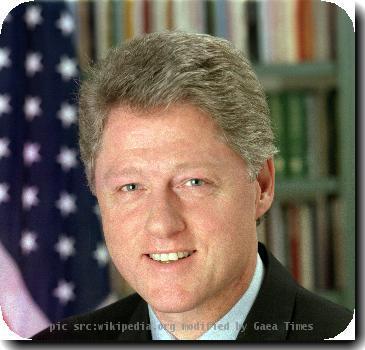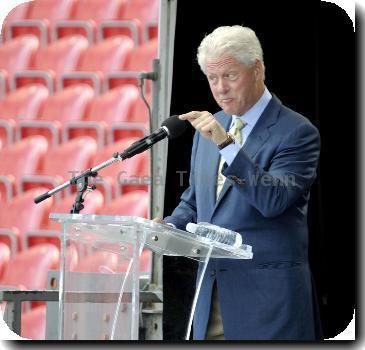Historian testifies in gay marriage trial that procreation not sole reason for marriage
By Paul Elias, APTuesday, January 12, 2010
Historian: Marriage about more than procreation
SAN FRANCISCO — A Harvard professor testifying in a case challenging California’s gay marriage ban presented a centuries-old history lesson Tuesday on government regulation of marriage, even touching on President Bill Clinton’s indiscretions to argue that the institution has evolved dramatically over time.
In her second day of testimony, Nancy Cott, a U.S. history professor and the author of a book on marriage as a public institution, disputed a statement by a defense lawyer that states have a compelling interest to restrict marriage to heterosexual couples for the sake of procreation.
Cott said marriage also serves an economic purpose — one that was especially pronounced when it was assumed that men and women performed different jobs in their partnership.
But as traditional gender roles and the purposes of marriage have changed, the reasons to bar same-sex couples from marrying have gone away, she said.
“It does seem to me that the direction of change leads consistently toward the appropriateness of allowing same-sex couples to marry,” she said. “There is no longer the expectation that the man-woman differentiated, need-bound household is needed.”
The lawsuit was brought by two same-sex couples unable to marry because of the state’s voter-approved Proposition 8, which limits marriage to a man and a woman. It’s the first case heard in federal court to decide the constitutionality of state bans on gay marriage.
Chief U.S. District Judge Vaughn R. Walker is presiding over the case without a jury.
Regardless of the outcome, the case is likely to be appealed to the U.S. Supreme Court, where it could lead to laws that restrict marriage to a man and a woman being upheld or abolished nationwide.
Under cross-examination by a lawyer for the sponsors of California’s Proposition 8, Cott conceded she couldn’t predict the consequences for society of same-sex marriage.
Defense attorney David Thompson spent more than two hours reading excerpts from Cott’s writings and testimony in state-level gay rights cases to portray her as an advocate who was selectively reading the historical record to support her personal views.
“In your opinion, morality has been uncoupled from marriage, correct?” Thompson asked.
Cott said she had written something to that effect in the context of adultery and premarital sex no longer being considered crimes. Thompson asked if she considered the public’s willingness to excuse Clinton’s infidelity while in office to be evidence of a “seismic shift” in sexual mores.
“Yes,” Cott said. “The majority of the public overlooked his infidelities because, I argued, the social meaning of marriage had moved toward the idea that spouses themselves are best equipped to decide what is acceptable behavior within marriage, not something the state would judge.”
Meanwhile, two San Diego pastors who were active in the campaign to pass Proposition 8 asked Judge Walker to squash the subpoenas summoning them to testify as hostile witnesses for the plaintiffs.
The pastors, Miles McPherson and James Garlow, said being asked about their campaign activities would violate their civil rights.
Cott’s expert testimony marked a change in tone from the trial’s first day, when the plaintiffs gave intimate accounts of their private and public lives, at times tearfully testifying about moments of awkwardness, disappointment and shame that they said resulted from their inability to legally wed.
Kristin Perry, 45, and her partner, Sandra Stier, 47, and a gay couple from Los Angeles, Paul Katami, 37, and Jeffrey Zarrillo, 36, were the first witnesses.
Tags: Bill Clinton, California, Couples, North America, Relationships, San Francisco, United States

